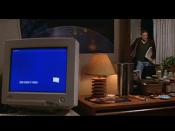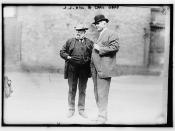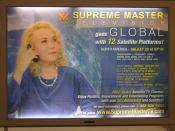Is controversial television advertising the choice of a free society? Manufacturers advertise to increase market share and to promote a positive image. For some advertisers this may include ÃÂcontroversialÃÂ television advertisements. An example is the ÃÂJoe CamelÃÂ advertising campaign used by R. J. Reynolds Tobacco Company. Protests were launched because people believed the use of a carton character was intended to target children. Peart (1993) writes:U.S. Surgeon General Antonia Novello demanded that the tobacco company remove Joe Camel from all its advertising and marketing. Although the Surgeon GeneralÃÂs office had no legal authority to force a change, Novello said the company should do it [stop using Joe Camel] for moral reasons, because the ads enticed youngsters to smoke. As evidence, she cited a study showing that children as young as age 6 recognized the Joe Camel character and linked it [the cartoon character] with smoking.
The American Medical Association (AMA) joined the Surgeon General in pressuring R.
J. Reynolds. The AMAÃÂs spokeswoman, Lisa Levin, said, ÃÂ. . . cartoons have a great appeal for children. Children are not mature enough to make an informed decision about smoking.ÃÂ Peart (1993).
R. J. Reynolds refused to change it ads. The Joe Camel character, it said, is not aimed at children, but 35-year-olds. ÃÂKids recognize a lot of advertising directed to their parentsÃÂ, said Peggy Carter, a company spokeswoman. It does not mean that they go out and use the products.ÃÂ In addition, defenders of the company say the Surgeon GeneralÃÂs demand infringes on the companyÃÂs right to free commercial speech, it legal protection from censorship. Peart (1993).
Advertisers often use sex or sexual content in advertising campaigns. The Calvin Klein Company hired a young Brook Shields as a brand spokesperson for a line of jeans. Her tag line ÃÂnothing gets between...


